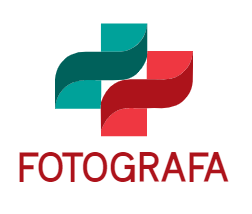France’s slow coronavirus vaccination strategy is counter-productive

PARIS (AFP) – France’s cautious approach to rolling out the coronavirus vaccination program appears to have backfired, as barely 500 people were vaccinated in the first week and sparked outrage over the government’s handling of the pandemic.
Amid popular protests, the health minister on Monday pledged to ramp up the pace, making a belated public appeal on behalf of the vaccine, saying it provided a „opportunity” for France and the world to eradicate a pandemic that has killed more than 1.8 million people. President Emmanuel Macron held a private meeting with senior government officials on Monday to discuss vaccine strategy and other virus developments.
The slow release of the vaccine by Pfizer and German company BioNTech has been blamed for mismanagement, staff shortages during vacations, and a complex French approval policy designed to accommodate the unusually wide vaccine suspicion among the French public.
Doctors, mayors and opposition politicians called on Monday for faster access to vaccines.
„It is a scandal of the state,” said Jean Rottner, head of the Grand East region in eastern France, where infections are increasing and its capacity is growing.
„Getting the vaccine has become more complicated than buying a car,” he said on France 2 TV.
In France, the country of 67 million people, only 516 people were vaccinated in the first six days, according to the French Ministry of Health. Health Minister Olivier Ferrand promised that by the end of Monday, „several thousand” people will be vaccinated, with the pace increasing during the week – but that still leaves France behind its neighbors.
The total for the first week in Germany exceeded 200,000 and Italy over 100,000 – and even those countries are being criticized for being too slow to protect the public from a pandemic that has killed more than 1.8 million people around the world.
Meanwhile, the United States and China have vaccinated millions. Britain on Monday became the first country In the world to start giving people shots of the Oxford-AstraZeneca vaccine, so the UK now has two vaccines approved for their use.
France began the vaccination campaign on December 27 in nursing homes, because many elderly people have died from the virus. But in the face of fears that people with cognitive problems would be vaccinated against their will, the government devised a time-consuming screening process before vaccines could be ordered and administered.
The Macron government is also taking care not to appear to be imposing vaccines on anyone.
Although France has lost more lives to the virus than most countries – more than 65,000 – opinion polls indicate that the French are extraordinarily wary of vaccines. They remember past French pharmaceutical scandals, worry about the speed of development of these new vaccines and their long-term impact, and wonder what profits they bring to the major pharmaceutical companies.
But many other French are keen to get vaccinated, and have been frustrated by the surprisingly slow application.
„We are doing everything we can to motivate people to get vaccinated,” said Frederick Learet, director of the St. Vincent Hospital in Strasbourg, eastern France, where the rehab facility for the elderly began vaccination on Monday.
He expressed his regret for a mixed message from senior French officials, which he summarized as follows: „Go get the vaccination, but we will go slowly because it could be dangerous.”
Now that millions of people have been injected into multiple countries, he said attitudes are starting to shift. The French government amended its policies over the weekend to allow immediate vaccination of medical workers over the age of 50, as well as residents of nursing homes. Vaccines will be gradually made available to others.
Similar problems arose across Europe.
Spain saw vaccinations move slowly during the New Year holidays, and he was blamed for the lack of medical personnel and freezers for the vaccine, after a batch of them was caught in the bottleneck of trucks trying to enter the European mainland from Britain. Reports from regional authorities showed that less than a fifth of the Spanish vaccine doses had been given by Monday, more than a week after they arrived.
In Germany, where nearly 265,000 vaccines against the coronavirus were reported by Monday, impatience is increasing with what is seen as a slow start. A spokesman for Chancellor Angela Merkel, Stephen Seibert, promised that „some things can and will get better.”
Amid the criticism, a European Commission spokesperson defended the European Union’s mass vaccine strategyThe main problem, saying Monday, is the lack of production capacity.
The European Medicines Agency, the medical regulator of the 27-nation bloc, met on Monday to discuss approval of the Moderna coronavirus vaccine.
___
Samuel Petrikin from Brussels, Ariitz Parra in Madrid and Jeremolson in Berlin contributed.
___
Follow the Associated Press epidemiological coverage at:
https://apnews.com/hub/coronavirus-pandemic
https://apnews.com/hub/coronavirus-vaccine
https://apnews.com/UnderstandingtheOutbreak

„Fanaticul cafelei. Jucător. Iubitor de zombi premiat. Student. Avocat hardcore pe internet. Guru Twitter. Tocnic fermecător cu slănină subțire. Gânditor.”
